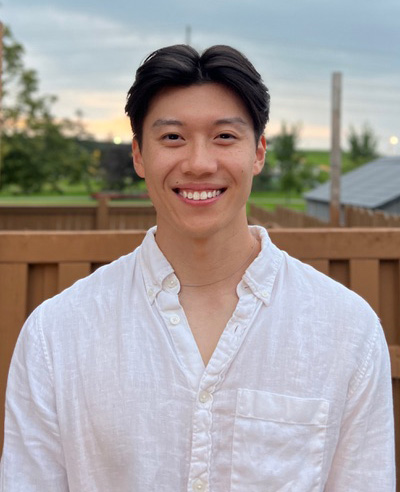1. Welcome back to the TBCRU, can you remind our readers who you are and tell us a little about yourself.
My name is Veronica Dubois, I am a second-year master’s student. Working under the supervision of Dr. John Ronald and co-supervision of Dr. Paula Foster at Western University in the Robarts Research Institute.
2. As a senior researcher, why is the TBCRU Studentship Award important to you, how does it allow you to advance your research?
The TBCRU Studentship Award is very important to me because it supports my research goals and allows me to collaborate with other students that have similar goals. The opportunities provided to us by TBCRU reminds us why we need to continue our efforts to help breast cancer patients and motivates us to find better ways to detect and treat breast cancer.
3. In a few lines, can you remind us what you are doing and what problems do you hope to solve with your research?
I am studying cancer treatments called chimeric antigen receptor (CAR) T cell therapies, using non-invasive imaging. CAR-T cell therapies are made by collecting T cells (a kind of immune cell) from a patient and modifying them to detect and kill cancer cells. Currently, these therapies are showing success against some blood-based cancers like leukemia. Still, they have not been very successful against solid tumours like breast cancer. My project aims to modify these CAR-T cells so that we can determine how many cells there are and where they are in the body using magnetic resonance imaging (MRI). We hope that the vital information obtained from this tracking will help researchers make safer and more effective CAR-T cell therapies if the future for fighting breast cancer.
4. Since we last spoke, have there been any changes to or any advancement in your research?
We have implemented changes to improve the quality of our images and make our protocol more efficient. Since we last spoke, our lab has also been able to make CAR-T cells, label them with tracking tags (called reporters), and image them with MRI. We are excited to continue our work and share it as it progresses.
5. Have you had an opportunity to present your research to your peer researchers? Was it at a national or international meeting or in some other way?
I have had the opportunity to present my research to my peers at our departmental Medical Biophysics seminars and to other scientists at national conferences called The Immuno-Oncology Symposium and The Imaging Network of Ontario. I look forward to submitting my research to international conferences this year so that I can share my work with a broader audience and make more connections that could advance our research efforts.
6. Did that presentation setting help you share your breast cancer research with the broader scientific community?
The conferences that I attended this year allowed me to present my work to many researchers and doctors in a variety of fields. By participating in these conferences, I received feedback that will help improve my research and scientific communication skills.
7. Did any of the feedback or conversations that came about from presenting your research, help you and your research in any way?
Presentations at scientific conferences have helped to shape my research project into what it is today. Multiple collaborations in our lab have started from conversations that we have had with colleagues after presentations. I could not have started my project without the generous help that we received from these research groups.
8. Now that you have had some more time with your research, how do you think your research will be applied in a real-world situation?
CAR-T cell therapies are starting to be approved for use in patients with blood cancers, and many are being tested in clinical trials. I think my research will provide valuable information about the behaviour of CAR-T cells after they are injected into the body and how we might be able to adapt these therapies. Hence, they are more successful against solid cancers like breast cancer.
9. Tell us about your involvement in the Breast Cancer Society of Canada fundraising events (Dress for the Cause, Mother’s Day Walk)?
This year I had the opportunity to help run Dress for the Cause at Robarts Research Institute with a fellow TCBRU recipient, Natasha Knier. We had a fun morning of games, treats, and photos to raise money for the Breast Cancer Society of Canada and raise awareness for breast cancer screening. I have also had the chance to fundraise and walk with people in the community during the Mother’s Day Walk that is held each year.
10. What about your participation in other Breast Cancer Society of Canada donor events or tours, how has that impacted your perspective on breast cancer research?
In October 2019, I had the opportunity to talk about my research on The Weather Network to kick off breast cancer awareness month. This was an amazing experience that showed me that our research could have a positive impact on patient’s lives.
11. What are you currently reading, watching or listening to outside of the lab?
I’ve been reading Bad Blood by John Carreyrou, I think it is excellent! I’m currently watching This Is Us and Grey’s Anatomy in my spare time, and I’m a big fan of country music.
Support researchers like Veronica Dubois by considering a donation to the Breast Cancer Society of Canada. Find out how you can help fund life-saving research, visit bcsc.ca/donate today.




